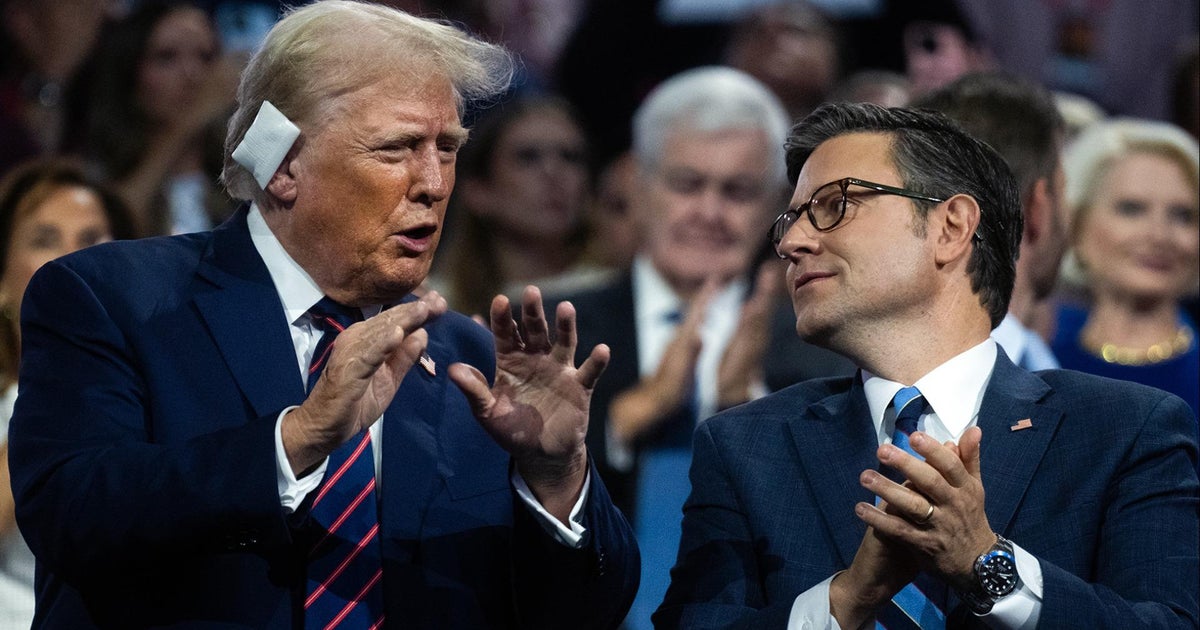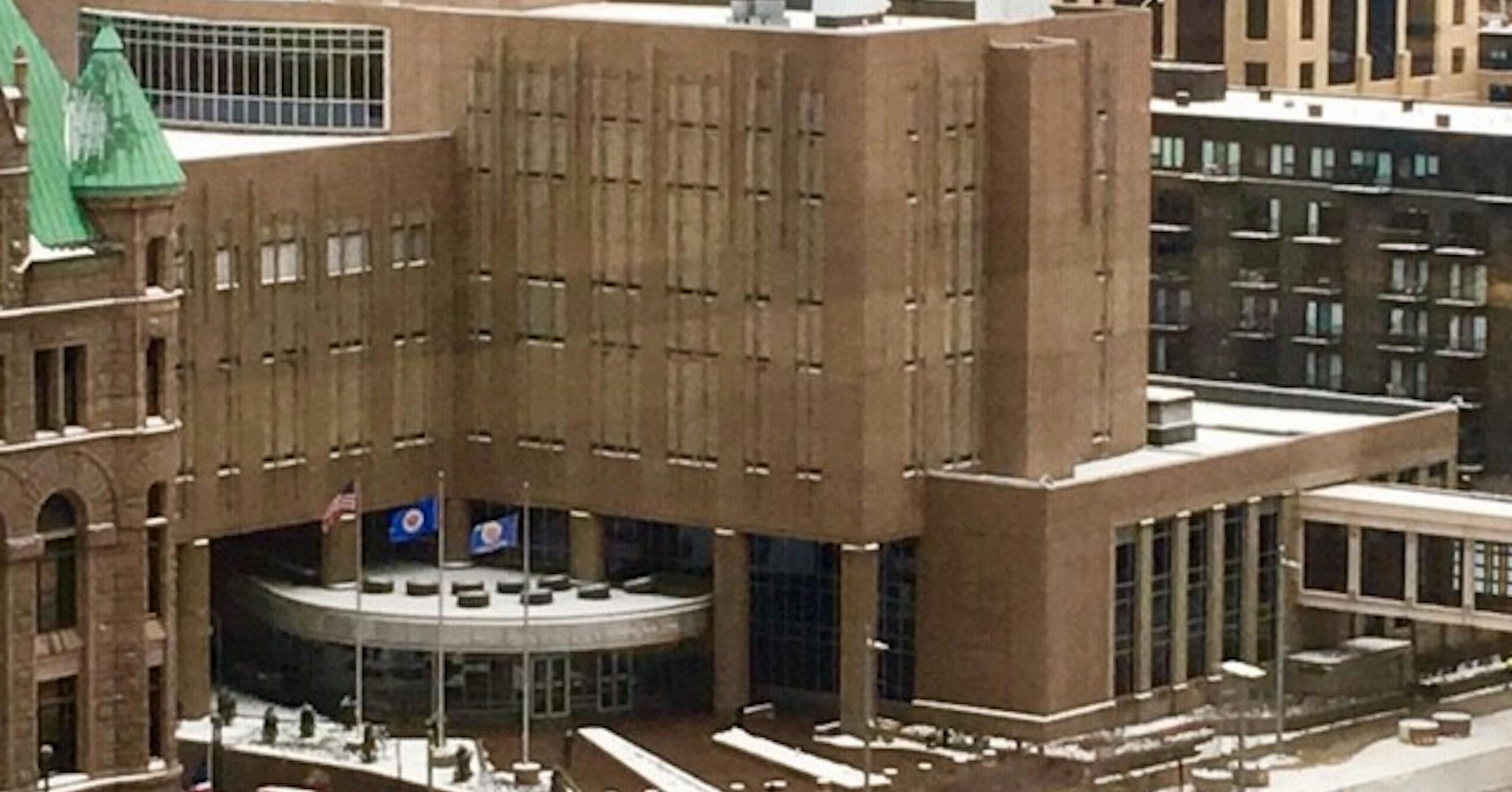CBS News
The assassin critical to the Russian prisoner swap | 60 Minutes

Lengthy, complex diplomatic talks leading up to the largest prisoner exchange since the Cold War came down to one sticking point: Russian President Vladimir Putin wanted the release of notorious assassin Vadim Krasikov, who had been convicted of murder in Germany.
The negotiations ahead of the August deal were more than a year in the making. They began over Americans held by Putin, but over the months, the deal grew to involve Russian dissidents. National Security Adviser Jake Sullivan, who was at the center of negotiations, said German Chancellor Olaf Scholz was critical to the deal.
“Without him, this would not have happened. Because a central piece of the puzzle was the release of a Russian agent named Vadim Krasikov. Without Krasikov, there is no deal,” Sullivan said.
Who is Vadim Krasikov?
Krasikov was convicted in 2021 of the 2019 murder of Zelimkhan “Tornike” Khangoshvili, a Georgian citizen of Chechen descent in Berlin. Khangoshvili was a Chechen rebel who had fought Russian troops in Chechnya.
Krasikov was sentenced to life in prison in Germany.
In November 2023, Russia rejected a different prisoner swap offer, saying that Krasikov must be part of any trade.
Making the 2024 prisoner swap with Russia happen
Sullivan knew a deal wouldn’t happen overnight.
“None of it’s straightforward. There’s going to be twists and turns. There’s going to be false starts,” he said. “Persistence, relentlessness, that’s part of the name of the game of actually securing the release of these Americans.”
Sullivan said Scholz’s dilemma was being able to look his people in the eye and say, “We are releasing someone who has committed a grievous crime on German soil. And therefore, I can deliver something for the people of Germany.”
So the deal was broadened.
“That’s why we ended up thinking through enlarging the problem, not just trying to bring out Americans, but of course bring out some German citizens as well,” Sullivan said. “And then, the critical move of being able to say to the German people, the American people, and the world, ‘We are also getting Russian Freedom Fighters out,’ including people like Vladimir Kara-Murza.”
60 Minutes
Scholz said his long friendship with President Biden influenced his decision to release Krasikov.
“It is not an easy decision. And I discussed it with many people in my government, and especially with Joe Biden, who asked me to help,” Scholz said. “And my view was that this is something which we could do.”
Sullivan remembers the moment Scholz said he would try to make a deal.
“He said, and I remember it very vividly, on the phone with President Biden, ‘For you, Joe, I will do this,'” Sullivan said.
Prisoners released
On Aug. 1, eight convicted Russian criminals and spies were traded for several Germans, three Americans and eight Russian dissidents, including Putin critic Kara-Murza, who’d been sentenced to 25 years in Russia.
“You know, it’s one thing to speak about protecting freedom or protecting human rights,” Kara-Murza said, “but it’s quite another thing to actually do something to protect them. And whatever else President Biden and Chancellor Scholz will be remembered for years from now, they will be remembered for this.”
60 Minutes
Kara-Murza told 60 Minutes he quoted Jewish scripture to Scholz after his release: “He who saves one life saves the entire world.”
“It was very nice to hear it, to be very honest with you,” Scholz said. “On the other hand, I don’t feel that great. I did what I thought is the right thing to do.”
CBS News
Future of government spending deal unclear after Trump opposition

Watch CBS News
Be the first to know
Get browser notifications for breaking news, live events, and exclusive reporting.
CBS News
Stock market plummets after Fed forecasts fewer rate cuts in 2025

U.S. stocks plummeted in one of their worst days of the year after the Federal Reserve forecast Wednesday it may deliver fewer shots of adrenaline for the economy in 2025 than it had earlier projected.
The S&P 500 fell 178 points, or 3%, pulling it further from its all-time high set a couple weeks ago. The Dow Jones Industrial Average lost 1,123 points, or 2.6%, while the Nasdaq composite dropped 3.6%.
The Fed said Wednesday it’s cutting its benchmark interest rate for a third time this year, continuing the sharp turnaround begun in September when it started lowering rates from a two-decade high to support the job market. Wall Street loves lower interest rates, but the Dec. 18 cut had been widely expected by Wall Street.
Why is the stock market down today?
Investors were unsettled by the Fed’s forecast for fewer cuts in 2025, even though many economists had already been paring their expectations given sticky inflation.
“Markets have a really bad of habit of overreacting to Fed policy moves,” Jamie Cox, managing partner for Harris Financial Group, said in an analyst note. “The Fed didn’t do or say anything that deviated from what the market expected—this seems more like, I’m leaving for Christmas break, so I’ll sell and start up next year.”
The bigger question centers on how much more the Fed could cut next year. A lot is riding on it, particularly after expectations for a series of cuts in 2025 helped the U.S. stock market set an all-time high 57 times so far in 2024.
Fed officials released projections on Wednesday showing the median expectation among them is for two more cuts to the federal funds rate in 2025, or half a percentage point’s worth. That’s down from the four cuts they had expected just three months ago.
“We are in a new phase of the process,” Fed Chair Jerome Powell said. The central bank has already quickly eased its main interest rate by a full percentage point, to a range of 4.25% to 4.50%, since September.
What happened to the stock market today?
Asked why Fed officials are looking to slow their pace of cuts, Powell pointed to how the job market looks to be performing well overall and how recent inflation readings have picked up. He also cited uncertainties that will require policy makers to react to upcoming, to-be-determined changes in the economy.
While lower rates can goose the economy by making it cheaper to borrow and boosting prices for investments, they can also offer more fuel for inflation.
Powell said some Fed officials, but not all, are also already trying to incorporate uncertainties inherent in a new administration coming into the White House. Worries are rising on Wall Street that President-elect Donald Trump’s preference for tariffs and other policies could further juice inflation, along with economic growth.
“When the path is uncertain, you go a little slower,” Powell said. It’s “not unlike driving on a foggy night or walking into a dark room full of furniture. You just slow down.”
One official, Cleveland Fed President Beth Hammack, thought the central bank should not have even cut rates this time around. She was the lone vote against Wednesday’s rate cut.
Wall Street’s worst performers
The reduced expectations for 2025 rate cuts sent Treasury yields rising in the bond market, squeezing the stock market.
The yield on the 10-year Treasury rose to 4.51% from 4.40% late Tuesday, which is a notable move for the bond market. The two-year yield, which more closely tracks expectations for Fed action, climbed to 4.35% from 4.25%.
On Wall Street, stocks of companies that can feel the most pressure from higher interest rates fell to some of the worst losses.
Stocks of smaller companies did particularly poorly, for example. Many need to borrow to fuel their growth, meaning they can feel more pain when having to pay higher interest rates for loans. The Russell 2000 index of small-cap stocks tumbled 4.4%.
Elsewhere on Wall Street, General Mills dropped 3.1% despite reporting a stronger profit for the latest quarter than expected. The maker of Progresso soups and Cheerios said it will increase its investments in brands to help them grow, which pushed it to cut its forecast for profit this fiscal year.
Nvidia, the superstar stock responsible for a chunk of Wall Street’s rally to records in recent years, fell 1.1% to extend its weekslong funk. It has dropped more than 13% from its record set last month and fallen in nine of the last 10 days as its big momentum slows.
“As we wrote in our 2025 outlook a couple of weeks ago, stretched positioning and sentiment left stocks vulnerable to a sell-off,” Jeff Buchbinder, chief equity strategist for LPL Financial said in a note about today’s market sell-off. “The big jump in inflation expectations and related bond sell-off was a convenient excuse. Once support from tech evaporated, no other groups were able to step in to fill that gaping hole.”
CBS News
Trump comes out against Johnson bill that would avert shutdown

Watch CBS News
Be the first to know
Get browser notifications for breaking news, live events, and exclusive reporting.










